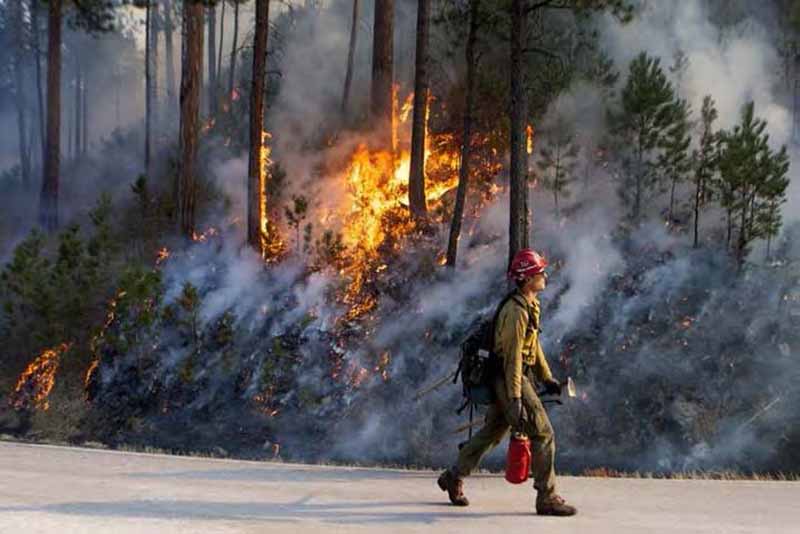A bipartisan group of senators has introduced legislation that would help electric cooperatives reduce the growing threat of devastating wildfires.
Sens. Tim Sheehy, R-Mont., John Curtis, R-Utah, John Hickenlooper, D-Colo., and Alex Padilla, D-Calif., introduced the Fix Our Forests Act on Friday, urging the full Senate to take action in the wake of an escalating crisis. The House passed its version of the bill in January.

The Senate sponsors cited figures from the National Interagency Fire Center showing that the number of acres burned across the nation jumped 231% from 2023 to 2024.
“The American West [is] on the front lines of a growing wildfire crisis—and the longer we wait, the more acres will burn, and more families will be impacted,” Curtis said.
“After months of bipartisan cooperation and consensus-building, my colleagues and I are introducing comprehensive legislation to support forest health, accelerate restoration, and equip local leaders—from fire chiefs to mayors—with the tools and data they need to protect lives, property, and landscapes.”
The legislation would expedite federal approvals to allow co-ops to harden their grids against wildfires and remove the hazardous vegetation that fuels blazes.
It would greatly expand the ability of co-ops to remove “hazard trees” that are in danger of sparking fires by falling from federal property onto electric lines. Currently, co-ops can only remove trees and other vegetation within 10 feet of their power lines and rights of way. The Fix Our Forests Act would allow co-ops to remove trees within 150 feet of their lines.
“NRECA applauds introduction of a Senate Fix Our Forests Act, which will help co-ops better address wildfire hazards on utility rights of way and protect the communities they serve,” said NRECA CEO Jim Matheson.
“Bureaucratic hurdles and red tape fall particularly hard on electric co-ops as they work to maintain their infrastructure on public lands. The Fix Our Forests Act streamlines and strengthens existing federal processes for essential electric grid maintenance activities on public lands.”
Hickenlooper said the Senate must act quickly to pass the bill.
“We need to act now with the speed required to mitigate wildfires and make our homes and businesses more resilient to these disasters, and to put in place protections for our communities and the environment,” he said.
Sheehy said “better stewarding our forests is something we can all agree on, regardless of party.”
“It helps secure a stronger economy; more resilient, healthy forests; and safer communities,” he said.
Padilla said the bill “prioritizes building fire-resilient communities, accelerating the removal of hazardous fuels, and strengthening coordination across federal, state, and tribal agencies, including through the creation of the first-ever National Wildfire Intelligence Center.”
That center would strengthen coordination efforts across federal agencies and streamline the federal response to combatting wildfires, the senators said in a joint news release.
They said the bill also would:
- Establish new and updated programs to reduce wildfire risks across large, high-priority firesheds.
- Streamline and expand tools for forest health projects and provide faster processes for certain hazardous fuels treatments.
- Create a single interagency program to help communities near wildlands build and retrofit structures with wildfire-resistant measures, while simplifying and consolidating grant applications to help fund the projects.
- Expand research and demonstration initiatives to test and deploy cutting-edge wildfire prevention, detection and mitigation technologies.
- Clarify policies to reduce wildfire-related litigation and expedite forest health treatments.
Erin Kelly is a staff writer for NRECA.